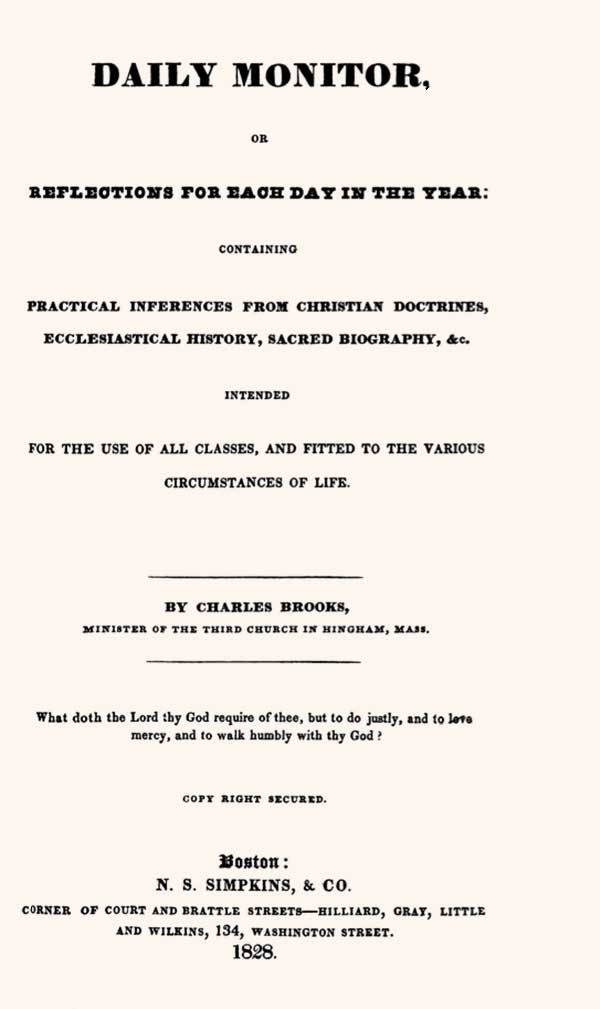Christ commanded us to forgive

Title page of Brook’s Daily Monitor
Today's Devotional
And forgive us our debts, as we also have forgiven our debtors —Matthew 6:12 (ESV).
By “our debtors” are intended those, who, in any respect, injure us, either in our persons, reputation, interest, or comfort. The Christian duty of forgiveness does not require a stoical or affected insensibility of such injurious treatment; for the gospel aims to regulate, not to extinguish the innocent feelings of our nature. Nor does the duty forbid our expressing to the injurious party a proper indignation and grief at his misconduct, and prudently attempting his conviction and amendment—on the contrary, the Scriptures enjoin us to go to our offending brother, and privately tell him his fault: its direction is, “You shall not hate your fellow countryman in your heart; you may surely reprove your neighbor, but shall not incur sin because of him” [Leviticus 19:17 NASB]—Nor does the duty in question prohibit us seeking satisfaction from those who have injured us. The laws of God, of self preservation, and of civil society warrant us, in such cases, to do justice to ourselves. The laws of Christianity require the injurious person to go and make satisfaction to his offended brother, and even to defer the performance of religious worship till he has honestly attempted this reconciliation.
The duty of forgiving offenders, implies, in the first place, that we really love them notwithstanding their pernicious conduct. We are to distinguish between the person and the fault; and to feel that he may become a good man, and then a good friend… The indulgence of an angry, sullen, malicious disposition towards an offender, is strictly forbidden. It is as remote from Christian forgiveness, as darkness is from light.
Secondly —this duty implies, a sincere desire and a resolved pursuit of the welfare of those who have injured us; and a heartfelt satisfaction in their amendment, and in their temporal and spiritual prosperity. He who thirsts for revenge or exults at the misfortunes of an offender has not the Christian spirit.
Thirdly—this duty requires a readiness of mind to confer with the offending party, to be reconciled to him on mild and equitable terms; and on his offering due satisfaction, to comfort him with the swift and frank assurance of our forgiveness and kindness. He who is only forced into reconciliation, betrays dark symptoms of latent enmity. The gospel requires a forgiving spirit and this spirit must be fixed, habitual and ready—not blind, and yet without wrath; not precipitate and yet free.
About the author and the source
In the preface to his Daily Monitor, Charles Brooks (1795–1872), minister of Third Church in Hingham, Massachusetts, declared his intention was “to convey heat rather than light.” He was a strong supporter of normal schools (teachers’ colleges).
Charles Brooks. Daily Monitor, or Reflections for Each Day of the Year… Boston: N.S. Simpkins & Co., 1828.





